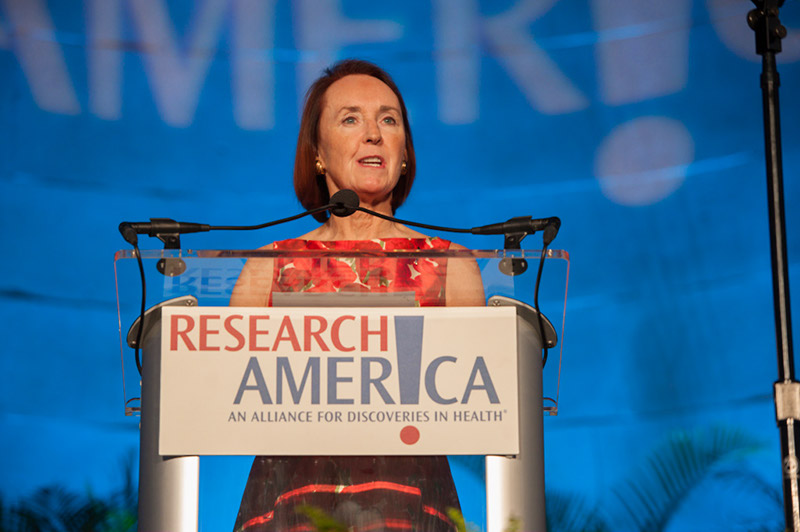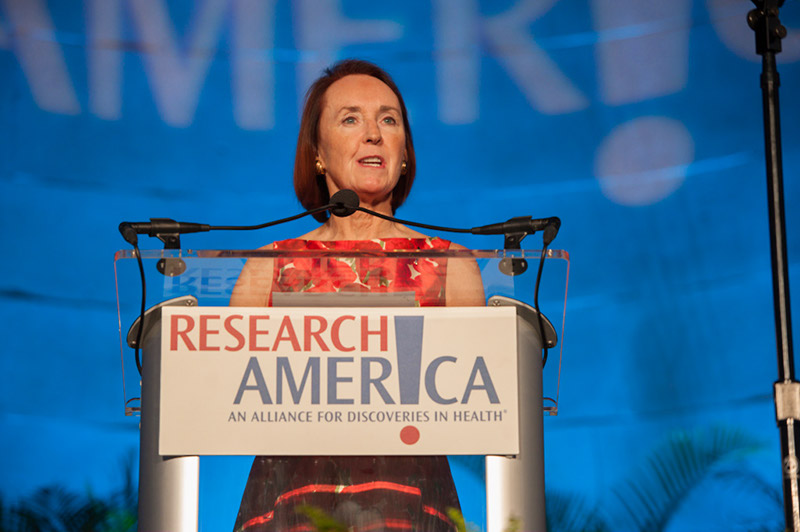Make Your Priorities Known

 Dear Research Advocate:
Dear Research Advocate:
The nation continues to reel in the aftermath of the Parkland massacre. This tragedy has raised the profile of both gun violence and mental illness, each of which demands attention in its own right. I hope you will take the opportunity to read a recent blog post Research!America member the National Alliance on Mental Illness (NAMI) posted on this topic.
Each year, 43 million Americans experience a mental illness. Suicide is the 10th leading cause of death in the U.S and depression is the leading cause of disability worldwide – and these just scratch the surface of the challenge. The R&D pipeline in the mental health arena, and in other areas of neurobiological research, has slowed to a trickle. (See FDA Commissioner Gottlieb’s statement on this issue, including disease-directed guidance aimed at incentivizing development). Research!America alliance members, join us in Washington at our annual meeting on Wednesday, March 14th for a panel discussion that will focus on the need, the obstacles, and the way forward for mental health research. Register now.
On the appropriations front, the Fiscal Year (FY) 2018 302(b) allocations that underpin federal agency and program funding levels are still under negotiation…reportedly held up by debates around infrastructure, the repurposing of dollars theoretically freed up by changes in mandatory programs (“CHIMPs”), and other hurdles. That said, rumors are swirling that the appropriations subcommittees are working with “draft” allocations to put a bill together that could be released as soon as March 2nd. That means time is of the essence. With just a few clicks on our Action Alert page you can send advocacy emails directly to your congressional delegation. Use the Twitter handles of congressional and appropriations leaders in tweets that include the hashtag #fundscience to help stimulate still more advocacy. If we want increased funding for NIH, NSF and the nation’s other science and public health agencies, we need to speak up now.
As FY18 budgeting (hopefully) wraps up, FY19 budgeting is already in process. Every member of Congress is invited to submit a list of funding priorities to the various appropriations subcommittees. Constituents can and do influence the programs and agencies included on these “appropriations requests” by submitting their own list of federal funding priorities to the members of Congress who represent them. Taking the time to make your appropriations priorities known truly does make a difference. Check the websites of your House and Senate representatives to see if their constituent appropriations request portals have gone live. Please let us know if we can assist you in navigating the appropriations request process!
During burn awareness week and ongoing, advocates are pushing for greater awareness of daunting challenges facing burn-related research and innovation, including lack of commercial incentives and gaps in basic tools like wound biomarkers. It is an area of research with crucially important applications. One of many examples: thermal wounds have historically comprised up to 20% of all combat-related casualties, a percentage that has likely risen with the prevalence of IED-related injuries. Burn research also conveys iterative benefits, informing treatments for wound care generally and for potentially deadly skin-binding-related diseases like Epidermolysis Bullosa (EB). Research!America’s burn research fact sheet is the newest in our “Research Saves Lives and Dollars” series. I hope you’ll make use of it to make the case for research!
Sincerely,
Mary Woolley




